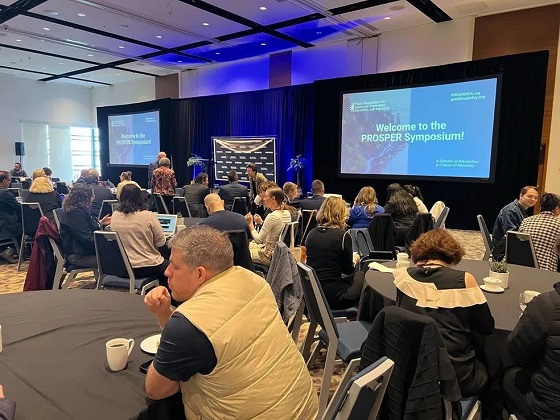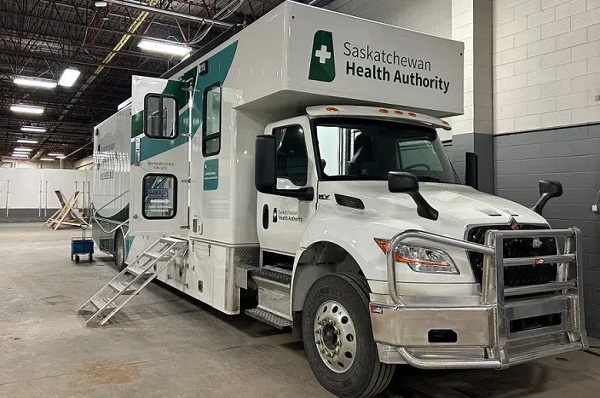Addictions
Harm-reduction activists could find common ground with critics if they kept an open mind

|
|
By Rahim Mohamed
The recovery-oriented PROSPER Symposium was protested by harm reduction activists.
A star-studded symposium on recovery-oriented drug policy went off without a hitch in Vancouver on Thursday, despite efforts by several prominent harm-reduction activists to sabotage the event.
Harm-reduction activists oppose the enforcement of criminal laws prohibiting public drug use and the prioritization of treatment and recovery-oriented policies.
Yet, if these activists had attended the symposium rather than undermining it, they likely would have found they agreed with many of the speakers’ points.
The PROSPER symposium — which stands for Policy Roundtable on Substance Prevention, Education, and Recovery — was moved to a new venue after organizers caught wind of credible threats to the event’s security. Audio recordings leaked before the symposium depicted activists brainstorming ways to disrupt the proceedings, including by dyeing fountains red, shouting down speakers and honking horns.
The last-minute venue change didn’t stop a handful of protestors affiliated with the group Moms Stop the Harm from picketing the event. Some held photographs of lost loved ones. Others commented to on-location news crews at various points throughout the day.
Fortunately, the event’s logistical challenges didn’t dissuade three high-profile elected officials — Official Opposition leader and leader of BC United Kevin Falcon, BC Conservative Party leader John Rustad and Port Coquitlam Mayor Brad West — from attending the conference.
Even though PROSPER was a success, one can’t help but lament the missed opportunity for the event’s organizers and detractors to come together to find common ground on sensible drug policy.
Speaker after speaker reaffirmed the importance of the 4 Pillars approach to combating drug addiction and dependence. This approach says harm reduction plays an important role in drug policy, but also recognizes the importance of three other pillars: treatment, prevention and enforcement.
No speakers denied the importance of harm reduction; they only said they would like to see a more balanced approach that is recovery-oriented and sees harm reduction as one tool among many.
Subscribe to our newsletter to get our latest news and analysis – or donate to our investigative journalism fund.
One presenter, Dr. Launette Rieb of the University of British Columbia, shared findings from her research on the efficacy of supervised opioid agonist therapy, which involves using medications such as Suboxone to help patients taper their opioid use.
While some harm-reduction activists have been critical of providers of this therapy, many others advocate for its use and want to expand access to it. Why boycott a presentation about this treatment option?
Dr. Pouya Azar, a psychiatrist with Vancouver Coastal Health, had audience members watch snippets from recorded interviews he conducted with opioid-addicted patients. One of the interview subjects told Azar that his mom also used, and noted that taking drugs was one of the few activities they still did together.
These clips underscored the significance of environmental and psychosocial factors in facilitating lasting recovery. This is an idea that harm-reduction activists, at least in theory, also recognize.
The conference placed a strong emphasis on Indigenous perspectives on addiction and recovery. Indigenous leaders shared stories of how addiction had impacted their families and communities.
Harm-reduction activists often emphasize the importance of ensuring Indigenous perspectives are incorporated in treatment approaches. It seems unlikely they would have been offended by these presentations.
“I think many harm-reduction activists are well-intended, hardworking and want the right thing,” said former senior White House drug policy advisor Kevin Sabet and one of the conference’s organizers.
“But they’ve also been led astray by a much smaller group of people who want to dress up radical ideas with sympathetic faces,” he said. “It is in that small band’s group of interest to distort the truth and spread lies about what we are about.”
Sabet and fellow conference organizers have promised to meet with some of the protesters, including parents who lost their children to overdose, at a later point to find areas of agreement.
In the spirit of protecting open discussion, PROSPER also admitted several individuals who work for organizations that were implicated in the leaked audio recordings.
In his closing keynote, Stanford psychology professor Dr. Keith Humphreys expressed cautious optimism about the future of drug policy. He noted that some of the US’ most drug-addled jurisdictions, such as San Francisco and Portland, have recently taken meaningful steps toward sensible drug policies, including ramping up law enforcement in neighbourhoods with high concentrations of drug users.
“I think reality is our friend,” Humphreys said. The past few years have shown that “people who live in an ideological world can recover,” he added, referring to hardline ideological approaches to drug use and other urban issues that have become less popular in recent years.
It’s a shame that some of the people who may have benefited most from Humphreys’ message weren’t in attendance to hear what he had to say. By protesting initiatives like PROSPER, rather than engaging in good-faith dialogue with those who hold different views, these activists are hurting their own cause.
It’s too bad that they’re too blinded by their own ideology to see this.
Break The Needle. Our content is always free – but if you want to help us commission more high-quality journalism, consider getting a voluntary paid subscription.
Addictions
New RCMP program steering opioid addicted towards treatment and recovery

News release from Alberta RCMP
Virtual Opioid Dependency Program serves vulnerable population in Red Deer
Since April 2024, your Alberta RCMP’s Community Safety and Well-being Branch (CSWB) has been piloting the Virtual Opioid Dependency Program (VODP) program in Red Deer to assist those facing opioid dependency with initial-stage intervention services. VODP is a collaboration with the Government of Alberta, Recovery Alberta, and the Alberta RCMP, and was created to help address opioid addiction across the province.
Red Deer’s VODP consists of two teams, each consisting of a police officer and a paramedic. These teams cover the communities of Red Deer, Innisfail, Blackfalds and Sylvan Lake. The goal of the program is to have frontline points of contact that can assist opioid users by getting them access to treatment, counselling, and life-saving medication.
The Alberta RCMP’s role in VODP:
- Conducting outreach in the community, on foot, by vehicle, and even UTV, and interacting with vulnerable persons and talking with them about treatment options and making VODP referrals.
- Attending calls for service in which opioid use may be a factor, such as drug poisonings, open drug use in public, social diversion calls, etc.
- Administering medication such as Suboxone and Sublocade to opioid users who are arrested and lodged in RCMP cells and voluntarily wish to participate in VODP; these medications help with withdrawal symptoms and are the primary method for treating opioid addiction. Individuals may be provided ongoing treatment while in police custody or incarceration.
- Collaborating with agencies in the treatment and addiction space to work together on client care. Red Deer’s VODP chairs a quarterly Vulnerable Populations Working Group meeting consisting of a number of local stakeholders who come together to address both client and community needs.
While accountability for criminal actions is necessary, the Alberta RCMP recognizes that opioid addiction is part of larger social and health issues that require long-term supports. Often people facing addictions are among offenders who land in a cycle of criminality. As first responders, our officers are frequently in contact with these individuals. We are ideally placed to help connect those individuals with the VODP. The Alberta RCMP helps those individuals who wish to participate in the VODP by ensuring that they have access to necessary resources and receive the medical care they need, even while they are in police custody.
Since its start, the Red Deer program has made nearly 2,500 referrals and touchpoints with individuals, discussing VODP participation and treatment options. Some successes of the program include:
- In October 2024, Red Deer VODP assessed a 35-year-old male who was arrested and in police custody. The individual was put in contact with medical care and was prescribed and administered Suboxone. The team members did not have any contact with the male again until April 2025 when the individual visited the detachment to thank the team for treating him with care and dignity while in cells, and for getting him access to treatment. The individual stated he had been sober since, saying the treatment saved his life.
- In May 2025, the VODP team worked with a 14-year-old female who was arrested on warrants and lodged in RCMP cells. She had run away from home and was located downtown using opioids. The team spoke to the girl about treatment, was referred to VODP, and was administered Sublocade to treat her addiction. During follow-up, the team received positive feedback from both the family and the attending care providers.
The VODP provides same-day medication starts, opioid treatment transition services, and ongoing opioid dependency care to people anywhere in Alberta who are living with opioid addiction. Visit vodp.ca to learn more.
“This collaboration between Alberta’s Government, Recovery Alberta and the RCMP is a powerful example of how partnerships between health and public safety can change lives. The Virtual Opioid Dependency Program can be the first step in a person’s journey to recovery,” says Alberta’s Minister of Mental Health and Addiction Rick Wilson. “By connecting people to treatment when and where they need it most, we are helping build more paths to recovery and to a healthier Alberta.”
“Part of the Alberta RCMP’s CSWB mandate is the enhancement of public safety through community partnerships,” says Supt. Holly Glassford, Detachment Commander of Red Deer RCMP. “Through VODP, we are committed to building upon community partnerships with social and health agencies, so that we can increase accessibility to supports in our city and reduce crime in Red Deer. Together we are creating a stronger, safer Alberta.”
Addictions
Saskatchewan launches small fleet of wellness buses to expand addictions care

By Alexandra Keeler
Across Canada, mobile health models are increasingly being used to offer care to rural and underserved communities
Saskatchewan has launched a small fleet of mobile wellness buses to improve access to primary health care, mental health and addiction services in the province.
The first bus began operating in Regina on Feb. 12. Another followed in Prince Albert on March 21. Saskatoon’s bus was unveiled publicly on April 9. All three are former coach buses that have been retrofitted to provide health care to communities facing barriers to access.
“Mobile health units are proven to improve outcomes for people facing barriers to healthcare,” Kayla DeMong, the executive director of addiction treatment centre Prairie Harm Reduction, told Canadian Affairs in an email.
“We fully support this innovative approach and are excited to work alongside the health bus teams to ensure the people we support receive the care they need, when and where they need it.”
Wellness buses
Like all provinces, Saskatchewan has been grappling with the opioid crisis.
In 2023, an estimated 457 individuals died from overdoses in the province. In 2024, that number fell to 346. But the province continues to struggle with fatal and non-fatal overdoses.
In late February, Saskatoon firefighters responded to more than 25 overdoses in a single 24-hour period. Just over a week later, they responded to 37 overdoses within another 24-hour window.
Saskatchewan’s wellness buses are part of the province’s plan to address these problems. In April 2025, the province announced $2.4 million to purchase and retrofit three coach buses, plus $1.5 million in annual operating funds.
The buses operate on fixed schedules at designated locations around each city. Each bus is staffed with a nurse practitioner, nurse and assessor coordinator who offer services such as overdose reversal kits, addiction medicine and mental health referrals.
“By bringing services directly to where people are, the health buses foster safer, more welcoming spaces and help build trusting relationships between community members and care providers,” said DeMong, executive director of Prairie Harm Reduction.
Saskatoon-based Prairie Harm Reduction is one of the local organizations that partners with the buses to provide additional support services. Prairie Harm Reduction provides a range of family, youth and community supports, and also houses the province’s only fixed supervised consumption site.
The mobile model
Saskatchewan is not the only province using wellness buses. Across Canada, mobile health models are increasingly being used to expand access to care in rural and underserved communities.
In Kingston, Ont., the Street Health Centre operates a retrofitted RV called PORCH (Portable Outreach Care Hub) that serves individuals struggling with homelessness and addiction.
“Our outreach services are extremely popular with our clients and community partners,” Donna Glasspoole, manager at Street Health Centre, said in an emailed statement.
“PORCH hits the road two to three days/week and offers a variety of services, which are dependent on the health care providers and community partners aboard.”
Street Health Centre also has a shuttle service that picks up clients in shelters and brings them to medical clinics or addiction medicine clinics.
The PORCH vehicles are not supported by provincial funding, but instead rely on support from the United Way and other grants. Glasspoole says the centre’s permanent location — which does receive government funding — is more cost-effective to operate.
“The vehicles are expensive to operate and our RV is not great in winter months and requires indoor parking,” she said.

Politically palatable
Many mobile health models currently do not provide controversial services such as supervised drug consumption.
The Saskatchewan Health Authority told Canadian Affairs the province’s new wellness buses will not offer supervised consumption services or safer supply, where drug users are given prescribed opioids as an alternative to toxic street drugs.
“There are no plans to provide supervised consumption services from the wellness buses,” Saskatchewan Health Authority spokesperson Courtney Markewich told Canadian Affairs in a phone call.
This limited scope may make mobile services more politically palatable in provinces that have resisted harm reduction measures.
In Ontario, some harm reduction programs have shifted to mobile models following Premier Doug Ford’s decision to suspend supervised consumption services located within 200 metres of schools and daycares.
In April, Toronto Public Health ended operations at its Victoria Street fixed consumption site, replacing it with street outreach and mobile vans.
The Ontario government’s decision to close the sites is part of a broader pivot away from harm reduction. The province is investing $378 million to transition suspended sites into 19 new “HART Hubs” that offer primary care, mental health, addictions treatment and other supports.
Glasspoole says that what matters most is not whether services are provided at fixed or mobile locations, but how care is delivered.
Models that “reduce barriers to care, [are] non-judgemental, and [are staffed by] trauma-informed providers” are what lead more people toward treatment and recovery, she said in her email.
In Saskatchewan, DeMong hopes the province’s new wellness buses help address persistent service gaps and build trust with underserved communities.
“This initiative is a vital step toward filling long-standing gaps in the continuum of care by providing low-barrier, community-based access to health-care services,” she said.
This article was produced through the Breaking Needles Fellowship Program, which provided a grant to Canadian Affairs, a digital media outlet, to fund journalism exploring addiction and crime in Canada. Articles produced through the Fellowship are co-published by Break The Needle and Canadian Affairs.
Subscribe to Break The Needle
-

 Alberta2 days ago
Alberta2 days agoPunishing Alberta Oil Production: The Divisive Effect of Policies For Carney’s “Decarbonized Oil”
-

 Alberta2 days ago
Alberta2 days agoAlberta Premier Danielle Smith Discusses Moving Energy Forward at the Global Energy Show in Calgary
-

 Energy2 days ago
Energy2 days agoCanada is no energy superpower
-

 Fraser Institute2 days ago
Fraser Institute2 days agoLong waits for health care hit Canadians in their pocketbooks
-

 conflict2 days ago
conflict2 days agoIran nuclear talks were ‘coordinated deception’ between US and Israel: report
-

 conflict1 day ago
conflict1 day agoOne dead, over 60 injured after Iranian missiles pierce Iron Dome
-

 Crime2 hours ago
Crime2 hours agoManhunt on for suspect in shooting deaths of Minnesota House speaker, husband






